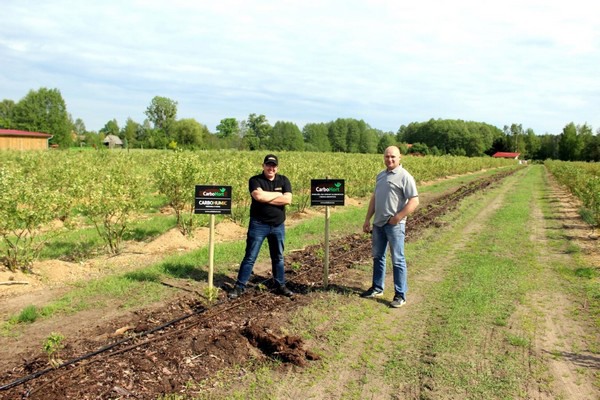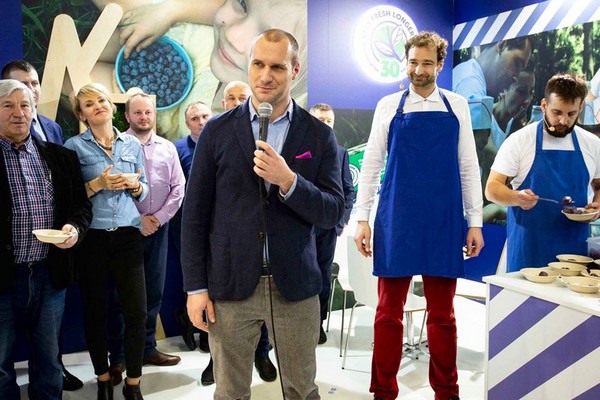Higher yields, but accompanied with challenges in terms of weather. This is what summarizes the Polish blueberry season quite well. Unpredictable heat and a lack of seasonal workers almost threw a monkey wrench in the entire season, but thanks to new fields and varieties the season still had enough to offer.
Mateusz Pilch from the Polish Berrygroup says the season was quite good to the Polish growers, albeit with some challenges to overcome: “For us the blueberry season was a good one. We had higher yields this year, as the amount of fruits we pick from new fields increases every year. New varieties also help us to improve overall volume and quality of our berries. Furthermore, we are constantly improving our cultivation methods. For example, this season we have successfully implemented a new 100% ecological substrate Carbomat – mainly for containers. We did face some unpredictable weather in the form of enormous heat and a number of hailstorms. The spring frost in Poland also made things difficult.”

The biggest markets for the Polish blueberries are found in Europe, and Pilch has noticed a trend when it comes to growth in consumption of blueberries. “UK, Scandinavia and Germany are still the main markets for our blueberries, but a lot is changing nowadays. We see a very dynamic growth of consumption in Central and Eastern Europe, so we want to develop our sales here. Countries like Poland, Czech Republic, Slovakia, Romania and Baltic countries definitely have our focus. I would say that prices for good quality fruit are quite stable, there is a decrease during bluecrop full harvest and an increase in price is usually noted around September.”

Organic cultivation is met with growing interest in Poland, and the same can be said for blueberries. Although there is no organic production of their own, Pilch states they are testing multiple new growing methods and are using packaging with reduced plastic: “Besides the earlier mentioned Carbomat substrate, we are using humic acids; in particular extract made from brown coal – Carbohumic to lower the fertilizer consumption, increase organic matter content in soil and to strengthen the plants against stressful conditions like weather, water scarcity, diseases, pests and so on. To meet our clients’ request, most of our fruit is packed using a top-seal machine. This way we can significantly reduce the amount of plastic that is used in our packaging. Hopefully we can start packing in fully recyclable punnets soon.”

For more information:
Mateusz Pilch
Berry Group
Tel: +48 696 069 674
Email: mateusz@berrygroup.eu
www.berrygroup.eu
Carbohort Sp. z o.o.
Tel: +48 518 034 023
Tel: +48 506 383 715
Email: biuro@carbohort.com
www.carbohort.com
